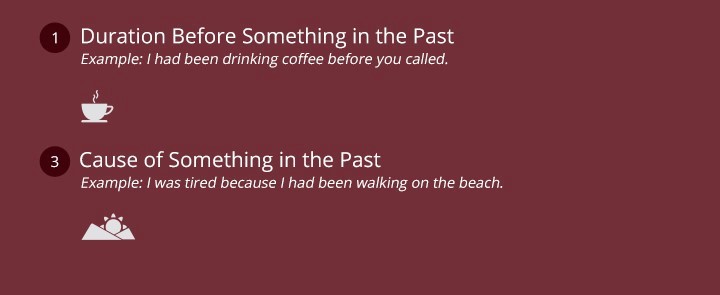Past Perfect Continuous Tense is one of the four sub-tenses of the Past Tense. Past Perfect Continuous Tense refer to those actions which started before a particular time, had continued up to the moment then was still advancing or had recently ended.

It can be understood more clearly with the following given structures and examples:
1. Sub + had been + v4 + obj. (Affirmative i.e. positive sentence)
For Example:
- They had been playing cricket.
- He had been debating with everyone.
2. Sub + had not been + v4 + obj. (Negative sentence)
For Example:
- They had not been playing cricket.
- He had not been debating with everyone.
3. Had + sub + been + v4 + obj? (Positive Interrogative)
For Example:
- Had they been playing cricket?
- Had he been debating with everyone?
4. Had + sub + not + been + v4 + obj? (Negative Interrogative)
For Example:
- Had they not been playing cricket?
- Had he not been debating with everyone?
5. Wh-word + had + sub + been + v4 + obj? (Wh-question)
For Example:
- What had they been playing?
- What had he been doing with everyone?
Where Past Perfect Continuous Tense is used?

Past Perfect Continuous Tense is used to show that an event/action started in the past and continued up to another time in the past. In short, it is used for the time duration in which an action occurred in the past.
- My father had been working in the bank before he joined the travel agency.
- How long had you been studying social work before you dropped the subject?
- How long had you been waiting to get the train tickets?
- I wanted to marry because I had been in live-in relationship for two years.
- My mother had been cooking before my father arrived.
Past Perfect Continuous Tense is used to show the cause of some actions/event that happened in the past. This tense is used before another action to show the cause and effect.
- I was happy because I had been taking a day off after a hectic week.
- He passed the exam because he had been studying hard for a long time.
- Ashton had back pain because he had been working continuously for hours.
- Ray was tired because he had been editing articles for two hours.
- Our team lost the game because they had not been practicing well.